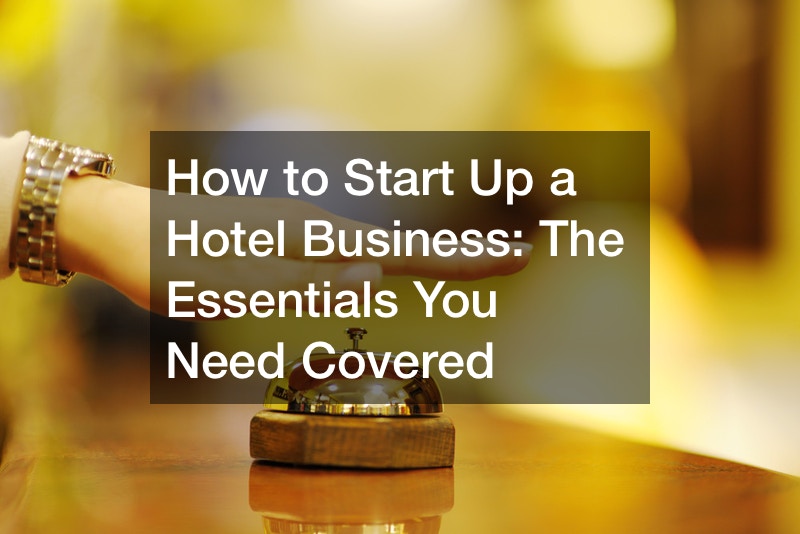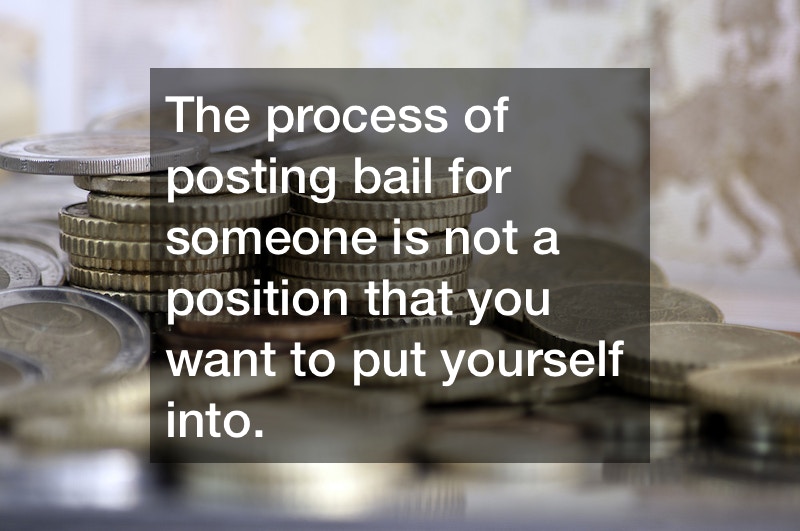
Any business can be challenging to start; however, a hotel business has its own particular challenges and requirements that others do not. However, many people still begin new hotel businesses each year, despite the challenges. Why? For one thing, there is something to be said about beginning a business that you are passionate about. A hotel business can be surprisingly personal. Hotels often require a number of individualistic touches, and you’re able to exert a lot of control over what the final product will be. Furthermore, if you’ve stayed in a lot of hotels over the course of your lifetime, you may want to perfect the product, creating a hotel that is better than those that you’ve stayed in before.
Additionally, hotels offer an amazing business opportunity, if you play your cards right. The fact is that people will always need somewhere to stay when they are traveling, and in turn, people will always travel. Therefore, if you start a hotel in the right location, there will always be a need for your business. You just need to convince people to stay in your hotel rather than those run by the competition. With that being said, let’s look into exactly how to get a hotel business started, and how to give your hotel the best possible chance of success.
1. Begin Planning

One of the first things you need to do is start a business plan. This is, of course, essential to starting any kind of business. But there is a particular plan you need to have in mind when beginning a hotel business. You need to study the hotel industry, and specifically the hotel industry within the areas where you’re planning to start your business. Furthermore, it’s important that you understand the specific legalities and regulations within the area where you’re planning on starting up your hotel business. Different areas have different rules regarding hotels, though there are also broader laws that you need to follow.
You also need to think about exactly how your business is going to make money, aside from the basic income that would be earned through people staying at your hotel. Would you offer room service or potential snacks for them to buy? Are there services that you want to add to your hotel? There is much that you can do to pad the income for your business.
During your business planning period, you need to think about what your target demographic would be. Give your target demographic (some small business owners even choose to give their target audiences a name and identity) your full attention as you begin developing your business. While there’s always a possibility that you will stumble across another demographic when your business begins developing, chances are high that if you aren’t able to capture your target demographic, you will likely be unable to fully succeed.
2. Identify Your Hotel’s Brand

Before you even buy a property, you need to understand exactly what you will be using that property for. For example, if you want to establish a hotel with spacious rooms of escalating luxury, you don’t want to invest in a smaller property that will only allow for rooms that are all of the same sizes. There are many different types of hotels on the market, and you’ll first want to establish where your hotel fits into that landscape. For example, boutique hotels are where some business owners choose to start. These hotels are typically smaller and have some kind of quirky or unique flair. A boutique hotel may be themed around the area in which it is located; a beach hotel could have a mermaid theme. There is typically more room for creativity in a boutique hotel.
A budget hotel, on the other hand, is usually more bare-bones and basic, to accommodate lower prices. While you would charge less for a budget hotel, you would also need to invest in less. You would still need to have the basics taken care of, like commercial plumbing services, but as long as the hotel is clean and functional, your guests will probably expect far fewer luxuries than they would from a more expensive hotel. Typically, you would need to spend less on a commercial building contractor for a budget hotel, as the overall build will be more simplistic.
Family hotels have a very clear, obvious target demographic, and are designed to accommodate that demographic. Usually, those that stay at family hotels stay there because the rooms are more spacious (for example, there may be two beds instead of one, or even a couple of beds and a pullout couch) as well as amenities like pools for families to enjoy together while they’re staying at the hotel. If you plan on catering to families, you should place your hotel in a location close to attractions like theme parks.
Finally, there are luxury hotels. These hotels are typically the most expensive to start, and it can be a while before your hotel establishes its full reputation as a luxury hotel. However, they can potentially have the highest profit yield in the long term. Usually, luxury hotels will offer not only pools but spas, concierge services, room service, and more. Some hotel owners begin with family or even budget hotels, but as they build up capital, eventually graduate to beginning luxury hotels.
3. Choose Your Business Status
Once you have decided exactly what type of hotel you need to begin, you should select a business status for business security purposes. An LLC is a common business entity for hotel owners to choose from, though some select other types of business entities. It’s incredibly important for you to form a business entity sooner rather than later. This will protect you as you build your hotel business. A business entity will keep your personal assets separate from your business.
Why is this so important? This is crucial simply because, unfortunately, new businesses have a high risk of failure. Ideally, your business will succeed, and you will be able to enjoy your success. But if your business does fail, you could be forced to declare bankruptcy. If you make your business a business entity, you will not need to pay the fees associated with declaring bankruptcy with your personal assets. Therefore, your personal assets will be protected in most scenarios if you form a business entity early.
4. Find A Hotel… Or Build One

Now you have a decision to make regarding your hotel. Are you going to buy an existing hotel, or build a new one? When you buy an existing hotel, you can rebrand and remake the hotel to whatever extent you like. Some hotel owners change the name of a hotel, utilize professional painters, and otherwise do relatively little with the hotel itself. If you’re lucky enough to buy a successful hotel, you may not want to change much about it, moving forward with the reputation of the previous business propelling your business. However, many hotels are being sold because they are not successful, in which case you may very well have reasons to heavily renovate the hotel. In many cases, however, existing hotels at least have the basics for you to begin with. They were made with the regulations and laws in your area in mind. Furthermore, you may be able to preserve some of the connections the previous hotel owner had for business purposes. For example, you could utilize the same elevator maintenance services that the previous hotel owner relied upon.
Building a hotel from the ground up can present different challenges, but also can allow you to put a more independent stamp on your hotel business. Keep in mind that building a hotel can cost at least five times more than buying a hotel, and if you’ve never built a hotel before, it’s possible that mistakes may be made in the process. Those mistakes in turn may be more expensive to fix. You should look at the costs in this sense: buying a hotel will likely cost more than the price tag of the hotel itself, as you will need to invest in renovations. But building a hotel will take longer, and will most certainly cost more; though you will be able to start fresh, with a hotel that hasn’t taken on any damage. Speak to different contractors before making a final decision.
5. Obtain Licenses, Permits, and Funding

Once you know exactly how you want to get your hotel started, it’s time for you to acquire the necessary permits and licenses. This can take some time, and you may have to work with lawyers during the process. Make sure that you aren’t missing anything in regards to local restrictions. This is because you’ll probably need to obtain these licenses and permits before you secure funding for your hotel.
Many hotel owners begin with a business loan, though this is not the only type of funding you can secure for your hotel. A business loan would allow you to have more control over how the funds are used, though you are not guaranteed one by any means. If you’re not so sure that a business loan is right for you, however, there are other options. Some hotel owners seek venture capitalist funding for their businesses. Angel investors are also occasionally options for hotel owners. In this day and age, crowdfunding isn’t even entirely out of the question. Be prepared to invest some of your own money in your hotel, if you can. Sometimes it’s worth taking the risk!
6. Create Connections and Hire Staff
Now it’s time for you to begin hiring staff for your hotel, as well as making business connections for your hotel’s maintenance. A hotel will need cleaning staff, of course, which you may hire internally or outsource to an outside cleaning company. You’ll need people running your hotel’s front desk, as well as security staff. Your hotel will need accountants, maintenance staff, and much more for its basic day-to-day operations. You’ll most likely want to keep attorneys on hand to represent you and your business as well.
Of course, you will also need connections to help you maintain your hotel on a regular basis. Ideally, you’ll never have a pest issue in your hotel; but you’ll still want it regularly inspected and cleaned by pest control service providers. Similarly, your hotel’s roof will need to be regularly inspected and maintained by a commercial roofer, and every hotel owner will want to have a commercial electrician on call in case of an emergency. You can also turn to those that work heavily with hotel owners for references; for example, a commercial electrician may very well have a recommendation about what type of commercial washing machine you should invest in.
7. Begin Advertising
When it’s time to launch your hotel, you’ll want people well aware of it in advance. With that in mind, make sure that you start your hotel advertising efforts early. You can do so the old-fashioned way, by taking out print ads and billboards… But you may find more success through social media advertising. Start an Instagram for your hotel, and consider hiring a social media marketing team. You may want to begin with a soft opening so that people can try out your hotel and help you work out any kinks before you officially open. Additionally, you may want to offer promotional discounts to early guests, especially if you think they may give you reviews.
No matter what type of hotel you plan on launching, be prepared for a good bit of hard work. However, if your hotel is successful, you will be able to rest assured knowing that you did your best and that your hard work paid off. Get organized, secure your funding, and be prepared for a wild ride.



